Hegel and the Ethical Life
Interview by Richard Marshall.
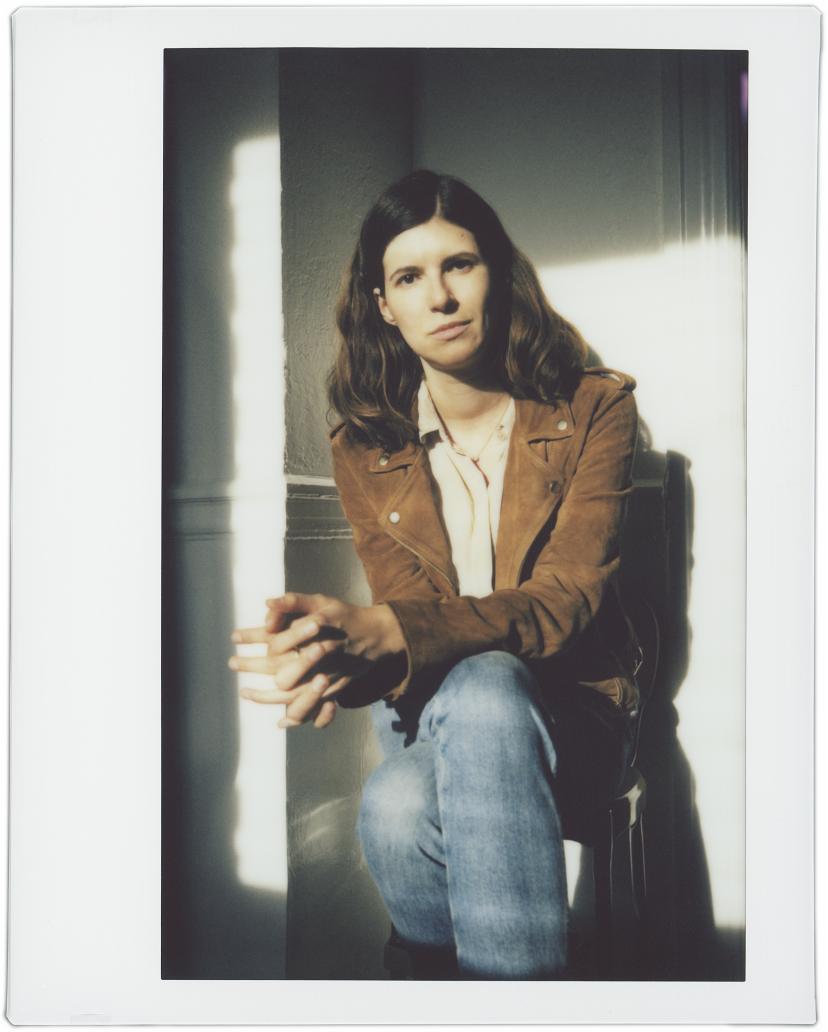
' Hegel’s target is not common sense in the genuine sense, but highly abstract versions of it, abstractions which fail to do justice to the ordinary perspective. Hegel is actually quite down-to-earth, much more than he sounds.'
'I think that Hegel has an ambivalent relationship to reflection. In some of his earlier writings reflection has exclusively negative connotations, but it comes to play an increasingly central role in his mature work. Philosophical thinking is, after all, an exercise in reflection. '
'Costello presents a challenge to the account of critical reflection that I go on to offer, because she suggests that such atrocities could become so seamlessly integrated into everyday life that no one suspects (except lone critics like her) that there is something deeply wrong here. It presents a challenge to Hegel’s optimism that, if there is something deeply wrong here, it will break through the surface in the form of practical contradictions, which will in turn make continued participation in the practice in question increasingly untenable.'
'I argue that Hegel considers the “habit of the ethical” to be an intelligent way of inhabiting your social context because it displays your convictions about the legitimacy of its social norms – convictions that are vindicated by the very practices you perpetuate.'
Andreja Novakovic's research focuses on the work of G.W.F. Hegel. She has additional interests in Critical Theory and Feminist Epistemology. Here she discusses common sense and Hegel, different ways of relating to ethical life, freedom as “being by oneself in another”, Hegel's ambivalent relationship to reflection, how the structure of reflection is manifest in activities like cooking spaghetti with meat sauce, the distinction between essence and seeming, whether ‘second nature’ is blind for Hegel, Hegels' interest in how critical reflection actually arises and how social change actually occurs, how he's explain the development of consciousness,the soul according to Hegel, and how it's different from spirit, the pathologies of the self-feeling soul and “Second nature”.
3:AM: What made you become a philosopher?
Andreja Novovic: Philosophy has been with me since childhood. My father had majored in philosophy and retained an active interest in it, even when he went on to pursue other fields. Some of my earliest memories are of inspecting the spines of the books in his study, wondering what they contained. When I was about 14, I read Sophie’s World, a novel written by Jostein Gaarder about a teenage girl who begins to receive mysterious letters in the mail. At first it is just postcards with questions like, “Who are you?” and “Where does the world come from?”, but they evolve into a course about the history of philosophy, dispensed through packages that tell different chapters of that story. The novel is gripping, and it depicts philosophy itself as something of an adventure. It made me decide that philosophy was what I was going to do with my life. It also led me to think that doing philosophy means engaging with its history, which I have taken to heart.
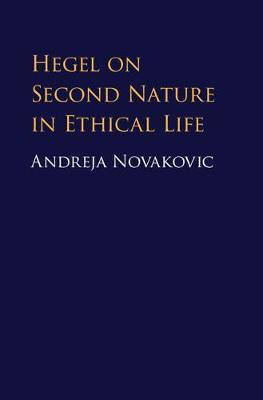
3:AM: You’re a Hegel expert and one of the key questions you ask about Hegel is how he conceives of our ordinary perspective when faced with the mundane task of finding our way about in our social world. His approach seems very detached and philosophical and convoluting, not at all like the way we go about grasping our social world. Does Hegel think he’s just telling us what we already know in his philosophy, even if we don’t recognize it as such?
AN: Because Hegel’s terminology is notoriously obscure, it is easy to get the impression that he has little regard for common sense. In some of his texts he even openly attacks the position of common sense. For example, in the Phenomenology of Spirit he begins by subjecting the standpoint of “natural consciousness” to a critique. According to this standpoint, objects of knowledge are things like houses or trees or cubes of salt, and to know them is to sense or perceive them. Because Hegel critiques this standpoint, it can seem as if he wants to abandon commonsensical views about knowledge and objects, or show these views to be confused or groundless. I think that Hegel’s target is not common sense in the genuine sense, but highly abstract versions of it, abstractions which fail to do justice to the ordinary perspective. Hegel is actually quite down-to-earth, much more than he sounds.
He sometimes describes his own method as making the implicit explicit, or reminding his readership of what it already knows. In my book (Hegel on Second Nature in Ethical Life) I explore how making the implicit explicit works in the context of his social and political philosophy. This leads me to read his social and political philosophy somewhat differently. Usually readers take for granted that Hegel is speaking to an audience that is in need of reconciliation with their world, which he seeks to accomplish by demonstrating that this world is indeed rational or good. Although I agree that Hegel is evaluating his social context, investigating whether it is worth inhabiting, I argue that he thinks its inhabitants already presuppose that it is and that they are right to presuppose it. So his vindication of ethical life is not meant to depart from what he we already know to be true of it, even if it reveals more of that context than is often in view.
One example that continues to interest me comes from his chapter on the state. In that chapter, Hegel observes that “it does not occur to someone who walks the streets in safety at night that this could also be otherwise, for the habit of safety has become another nature, and one does not stop to think that it is solely the effect of particular institutions” (PR §268A). Hegel is suggesting that, even though walking the streets in safety at night is itself evidence in favor of the state, evidence that is available to me, I tend to become so absorbed in my own projects that I grow oblivious of the institutions that support and enable them. This presents one way in which his Philosophy of Right is supposed to remind us of something that is all too easy to forget. I should add that my interest in this passage has recently shifted. Now I am interested in those cases in which it is “otherwise”, in which the institutions that could be relied on in this way are missing, ineffective, or themselves responsible for compromising people’s safety.
3:AM: In relating to our ethical life, does Hegel propose a hierarchy determined to the degree to which we reflect on its laws, starting on the bottom with an immediate relationship and moving towards philosophical comprehension, and does this ordering mean he thinks philosophical comprehension an advance on the embedded immediate one, or is to see it like that a mistake?
AN: I open my book with the passage to which you allude in your question (PR §147) in order to challenge the immediate impression it makes. According to this passage, there are different ways of relating to ethical life: a relation-less or “immediate” identity, a relation of belief or trust, insight based on reasons, and adequate cognition. Because Hegel lists them in order, it is often assumed to be a progressive hierarchy, with immediate identity being naïve by contrast, and with insight based on reasons representing an advance. Contemporary readers assume that “reasons” must be a good thing by Hegel’s lights, since he is such an advocate of reason.
In my reading of this passage I want to highlight two things: 1. This list is not a progression from worse to better, or from less to more intelligent ways of relating to ethical life. Instead of a ladder, it is better conceived as a circle. While further reflection can lead to confusion, it is a confusion that “adequate cognition” overcomes by returning us to our starting point. 2. This list is not meant to delineate discrete and mutually exclusive ways of relating to ethical life. For example, an attitude that appears as a merely naïve form of immediate identification already is already insightful. So these seeming “stages” are also different aspects of one and the same relation to ethical life, aspects that can assume dominance in different contexts.
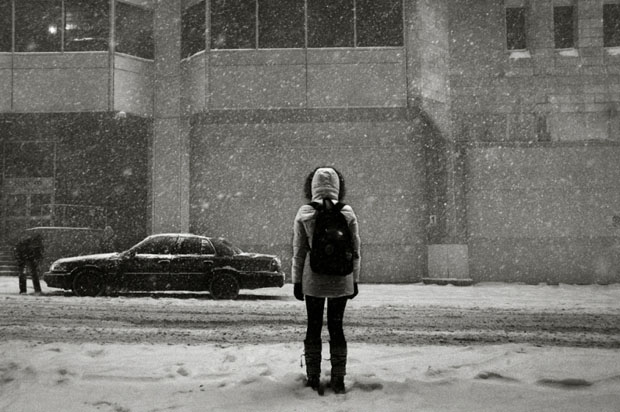
[Photo: Julien Coquentinfor his project “Early Sunday Morning]
3:AM: So what is the freedom that Hegel is investigating in his Philosophy of Rightand how does he propose to bring together its subjective immediate and objective philosophical guises?
AN: Hegel famously defined freedom as “being by oneself in another”. To be more specific, freedom is to be found in the relationbetween my will and its objective expressions – from actions to roles to institutions. Freedom so conceived has an objective and a subjective side. On the one hand, the object to which I relate has to be of a certain kind to make this relation possible. In other words, the institutions in which I enact my roles have to be, objectively speaking, rational or good. On the other hand, I am only fully free if I am able to adopt a certain attitude towards this object, namely, to see it asrational or good. This is Hegel’s requirement of subjective freedom, which he also calls the “right of subjectivity.” What I argue is that this right is already satisfied by immediate participation in ethical life, as Hegel understands it, and so does not require cognitive feats beyond those involved in social participation itself. This means that I do not have to “step back” from this social world and take up a distanced view of it in order to come to see it as rational. And I definitely do not have to read Hegel’s Philosophy of Right first!
3:AM: What does Hegel think the role of reflection is in this project? Is it sometimes a negative thing for him? After all, if a habit of the ethical is what he’s out to rehabilitate, then reflection would seem to be a threat.
AN: I think that Hegel has an ambivalent relationship to reflection. In some of his earlier writings reflection has exclusively negative connotations, but it comes to play an increasingly central role in his mature work. Philosophical thinking is, after all, an exercise in reflection. That said, it is important to be clear about what Hegel means by reflection. He does not necessarily mean the activity of “stepping back” and taking a distanced view, though this activity might be one expression of reflection. Rather, reflection for Hegel is manifest in a structure that can be present even when no conscious exercise of reflection has taken place. In other words, my relationship to my social roles might be “reflective” even if I never paused to think about them, let alone evaluate them. This suggests that there might be reflection within forms of social participation that look to be unreflective. One of my aims was to expose these covert instances of reflection. At the same time, you are right to suggest that reflection also presents a threat. Hegel is worried that it can have a destabilizing effect, generating abstractions that lead us away from our embedded forms of knowledge.
3:AM: What’s the relation between his account of reflection in the Philosophy of Right and his Logic?
AN: In the Logic Hegel has something relatively broad in mind – a structure that is established by a “movement” that need not involve any kind of conscious activity. This account of reflection was instructive for me because it allowed me to foreground these covert instances of reflection. As my future colleague Alva Noë helpfully suggested to me, a competent runner is always prepared for the possibility of stumbling, which means that her running is structured by its possibility, even she is usually not as a matter of fact stumbling. This preparedness for stumbling is one way to think of Hegel’s reflective structure. It prepares us for those moments when we do need to step back and take a distanced view.
This structure becomes even clearer in the case of productive activities. When I cook spaghetti with meat sauce, I am not just participating in a culinary tradition, but I am also establishing a reflective relationship to that tradition by producing an object which “mirrors” it. Although to cook is not yet to reflect critically about this tradition, it does open up space for it. I can take a second look at that meal and ask myself whether this is a practice that I can affirm. But this difference between cultural participation and critical reflection is crucial. The question that haunts the Philosophy of Right is not the possibility of reflection per se, which I argue is a part of all cultural participation, but that of critical reflection. And investigating that possibility requires going beyond the resources provided by the Logic.
3:AM: What do you mean when you say that reflection in the Logicgenerates the instability that the movement of stepping away from one’s own mirror image creates and why is his distinction between ‘cultural participation’ and ‘immersion in ethical life’ important?
AN: As I suggested just now, the structure of reflection is manifest in activities like cooking spaghetti with meat sauce, even when I am in the habit of making this meal every single night. In my analysis of cultural participation I wanted to show how a space for critical reflection is opened up by activities that are also habitual. This suggests that critical reflection is anticipated by immersed ways of participating in ethical life, even if it is not to be reduced to them either. An example of critical reflection that I discuss in the book is set by Elizabeth Costello (from J. M. Coetzee’s novel by the same name). She is an older writer who has grown increasingly alienated from her social context because she believes that she has discovered an atrocity – our treatment of animals – at the heart of our most mundane practices. As she tells her son:
“It’s that I no longer know where I am. I seem to move around perfectly easily among people, to have perfectly normal relations with them. Is it possible, I ask myself, that all of them are participants in a crime of stupefying proportions? Am I fantasizing it all? I must be mad! Yet every day I see the evidence. The very people I suspect produce the evidence, exhibit it, offer it to me. Corpses. Fragments of corpses that they have bought for money… Am I dreaming, I say to myself? What kind of house is this? Yet I’m not dreaming. I look into your eyes, into Norma’s, into the children’s, and I see only kindness, human kindness. Calm down, I tell myself, you are making a mountain out of a molehill. This is life. Everyone else comes to terms with it, why can’t you? Why can’t you? (Coetzee, Elizabeth Costello, Penguin 2003, pp. 114 – 115).
Costello presents a challenge to the account of critical reflection that I go on to offer, because she suggests that such atrocities could become so seamlessly integrated into everyday life that no one suspects (except lone critics like her) that there is something deeply wrong here. It presents a challenge to Hegel’s optimism that, if there is something deeply wrong here, it will break through the surface in the form of practical contradictions, which will in turn make continued participation in the practice in question increasingly untenable. Hegel is committed to the optimistic view that what is unethical cannot be sustained in the long run. Unfortunately, the long run could take a very long time.
3:AM: How does Hegel negotiate the distinction between essence and seeming, and relate it to this instability caused by reflection?
AN: Reflection in the Logic produces the distinction between essence and seeming, which is why it appears in the opening of his “logic of essence.” What this means is that reflection produces a difference between what something really is (its essence) and how it appears to be (its seeming). Although generating this difference marks a crucial step, it also has destabilizing repercussions, because it tends to demote the seeming to a “mere” appearance. It is an attitude I might adopt to my own mirror image. In some moods the face looking back at me seems to reveal, in other moods to conceal what I believe to be my true self. Of course, this conception of a true self is itself a product of reflection, an artifact of distinguishing (and discrediting) my outer self. It is for this reason that Hegel associates reflection with skepticism. Reflection introduces a kernel of doubt about the status of the reflected appearances.
3:AM: Is ‘second nature’ blind for Hegel? And doesn’t this have dangers – if he’s saying this is a good thing then isn’t this a very conservative position, one advocating a ‘my station and my duties’ position serving as an apologist for the status quo?
AN: My book began as an attempt to understand Hegel’s reasons for emphasizing habit in the Philosophy of Right. In a number of crucial passages he claims that under normal circumstances people follow the norms of ethical life habitually. Another way he puts this is to say that these norms have become a second nature to them. This could be read as nothing more than a sociological observation about the nature of social participation, one of which Hegel neither approves nor disapproves. But it is an aspect of his social and political philosophy that has been seen as a cause for alarm. In the context of critical theory, the term “second nature” became associated with various dangers – mistaking the social world for something natural, ossifying its norms and practices, insulating them from reevaluation, etc.
What I came to see is that habit is integral to Hegel’s account of ethical life. It is essential to what Hegel calls the “ethical disposition”, because Hegel thinks that such a disposition is only displayed in what people do regularly– in their habits. This is captured in statements about human beings being the sum totals of their deeds, which I interpret as a matter of habitual patterns of behavior. But appreciating Hegel’s position requires rethinking habits and resisting reducing them to mindless repetitions. I argue that Hegel considers the “habit of the ethical” to be an intelligent way of inhabiting your social context because it displays your convictions about the legitimacy of its social norms – convictions that are vindicated by the very practices you perpetuate. In short, the habit of the ethical is guided by insight into the good. I also argue that Hegel is not averse to principles. In fact, he thinks that this insight into the good, expressed in the habit of the ethical, can be codified into general principles of conduct, should the occasion call for it.
This is not yet to show that Hegel is not an apologist for the status quo, but it is a step in that direction.
3:AM: If non-reflective social participation is the end of his philosophy then isn’t this a philosophy no ruling elite has anything to fear and that turns ‘Bildung’ into teaching mere etiquette?
AN: I think that Hegel is interested in staying true to how critical reflection actually arises and how social change actually occurs. He was a witness to a lot of it during his own lifetime and it inspired his thinking. This is in part what he means when he claims in his Preface to the Philosophy of Right that it is the task of the philosopher to comprehend “actuality”, not to construct an ideal that exists only in our representations. So his philosophy is not meant to be prescriptive. It is not meant to discourage anyone from challenging the ruling elites, only to understand the challenges that have been raised. One place to look for an account of how critical reflection arises on the ground, so to speak, is in his Phenomenology of Spirit.
3:AM: Is your account based solely on his Philosophy of Right or can it be supported by looking at other texts of Hegel such as his Phenomenology, even though this text seems to be accounting for a different endeavor?
AN: Because Hegel is a systematic thinker, different aspects of his system clearly bear on each other. I found this to be true in the relationship between his Philosophy of Right and his “Anthropology,” in which he provides an account of habit in general relevant to the habit of the ethical. But I also found it to be true in the relationship between his Philosophy of Right and his Phenomenology of Spirit. I turn to the Phenomenology in order to investigate the emergence and impact of critical reflection, which I take to be instructive for a reading of the Philosophy of Right, even if critical reflection does not play a significant role in that text – mainly because Hegel did not foresee the extent to which modern ethical life would call for it. One exception to this is Hegel’s analysis of poverty in the context of civil society. Hegel provides reasons to think that the systemic creation of a “rabble” is beginning to expose a practical contradiction in modern ethical life. In short, poverty indicates that there is an irreconcilable tension between commitments at the core of civil society. And this is certainly a problem that Hegel acknowledged as worthy of critical reflection, even if he himself saw no fully satisfactory solution to it. So there is more continuity between the Phenomenology, with its emphasis on contradictions, and the Philosophy of Right than one might suspect.

3:AM: You’ve written about Hegel’s ‘Anthropology’ and say that this idea of human beings becoming conscious subjects, not in the midst of brute nature but in a social world that allows them to make the most of what nature has given them, doesn’t just give an explanation of how we can become ethical agents but also how we become aware of a world over and above us. Can you say more about how we do this according to Hegel?
AN: Hegel’s “Anthropology” appears at the juncture of “nature” and “spirit” because it is supposed to explain the development of consciousness. Hegel begins with a living individual that is still at the mercy of her sensations, feelings, and impressions, and he tracks how this individual develops the sorts of capacities that enable her to become conscious of objects. What Hegel indicates is that, even though he is telling the story from “Subjective Spirit” (individual capacities) to “Objective Spirit” (social institutions), he also could have told this story the other way around. This means that he could have started with the context into which human beings are actually thrown, which is already a social one, and then tracked how this social context becomes subjectively incorporated by individuals. Of course this process will presuppose certain natural capacities, but it will also demonstrated how those natural capacities get actualized in ethical life.
3:AM: So what is the soul according to Hegel, and how is it different from spirit?
AN: The soul for Hegel is a particular stage in the development of spirit. Hegel defines the soul as “natural spirit”, as “the universal immateriality of nature”, and as the “sleep of spirit.” The first definition is not so mysterious. It just means that the soul is the most natural manifestation of spirit because it refers to a potentially spiritual being that is at this point not substantially different from any other living organism. The second definition is a bit more puzzling, since Hegel is very careful to insist that soul does not refer to an immaterial substance. I think that what he means is that the soul is not yet individuated and so lacks contours, edges, or boundaries needed in order to give it a concrete, material existence. The third definition suggests an explanation for this. It calls the soul the sleep of spirit precisely because its relationship to that which affects is not yet conscious. This accounts for its vulnerability to external stimuli, but also to its inability to set itself apart as a discrete individual.
3:AM: Why does Hegel think that reliance of feeling for our self identity leads to madness, and how is habit supposed to be the cure?
AN: Hegel thinks that the self-feeling soul is prone to all sorts of pathologies that expose its limitations. The self-feeling soul has already assumed a degree of independence from its feelings by selecting among them and identifying with some at the expense of others. The problem is that feelings are particular, and moreover, fleeting. So to identify wholly with only one or a handful of them is to confuse their true nature. An example of this might be a romantic obsession, which can lead to the false impression that I am nobody without this specific emotional attachment. For Hegel this would be a form of madness, which he describes as “sleeping while awake”. Although Hegel does not think that madness is a necessary stage in the development of our subjective capacities, he does think that it shows the importance of habituation. Habit represents a cure to madness because it achieves the two goals of this developmental process: it introduces stability into our feelings and allows us to become individuated, to gain a sense of self. The way it achieves this is by significantly changing our relationship to our feelings, and by extension to the body as a whole.
3:AM: For contemporary philosophers habit as ‘second nature’ can mean different things: for John McDowell it’s a contrast between the ‘space of reasons’ and the ‘space of causes’, of spontaneity and receptivity: for David Forman it’s habit that maintains a connection with the natural world through reliance on sensory input and an eventual consciousness of nature. As a take home, can you say what you think second nature is? Are either of these two positions right, or do you have a different interpretation?
AN: “Second nature” is a rich metaphor that connects a number of different aspects of Hegel’s social and political philosophy – from the centrality of habit in ethical life, to a conception of ethical life as a product of human work, to that of ethical life as “living” (or, conversely, ossified or dead) – though it is not limited to these practical contexts either. It appears in the title of my book because of its breadth and range. Here is what I take to be the take home: Hegel describes ethical life as a second nature because he wants to point out that it appears to us as an open field, visible only in periphery, when things are going well. As long as ethical life succeeds in functioning as a second nature, we are able to go about our daily business without being distracted by it, and without relating to it as to an object of assessment. While this speaks in its favor, it is not to be taken for granted, because it is not always the case.
I’ll conclude with a passage from Merleau-Ponty’s Phenomenology of Perception that articulates a variation on this theme: “the nation or class are neither versions of fate which hold the individual in subjection from the outside nor values which he posits from within. They are modes of co-existence which are a call upon him. Under conditions of calm, the nation and the class are there as stimuli to which I respond only absent-mindedly or confusedly; they are merely latent. A revolutionary situation, or one of national danger, transforms those pre-conscious relationships with class and nation, hitherto merely lived through, into the definite taking of a stand; the tacit commitment becomes explicit.” (Merleau-Ponty, Phenomenology of Perception, Routledge 2002, p. 423)
3:AM: And for the readers here at 3:AM, can you recommend 5 books for us that will take us further into your philosophical world?
AN: Sure.

Hans-Georg Gadamer – Truth and Method
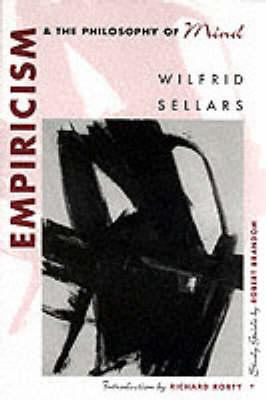
Wilfrid Sellars – Empiricism and the Philosophy of Mind
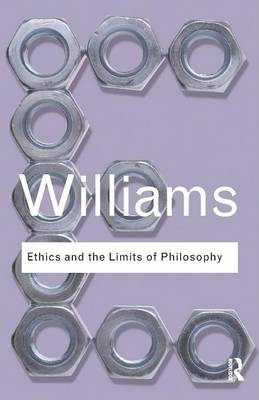
Bernard Williams – Ethics and the Limits of Philosophy

Hannah Arendt – On Revolution
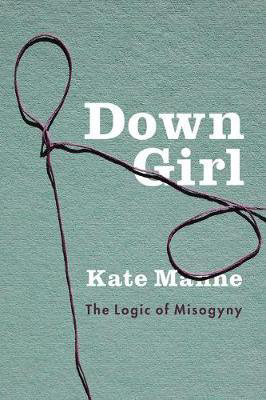
Kate Manne – Down Girl
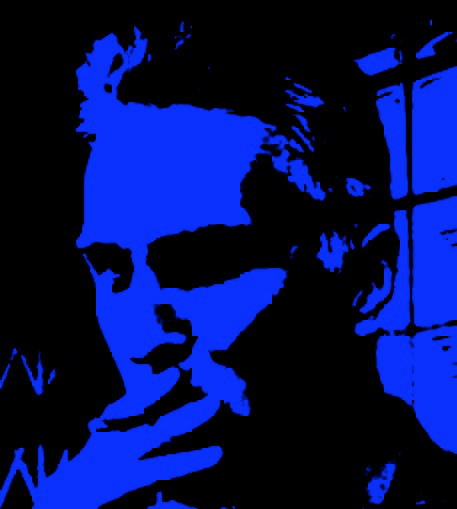
ABOUT THE AUTHOR
Richard Marshall is still biding his time.
Buy his new book here or his first book here to keep him biding!
End TimesSeries: the first 302